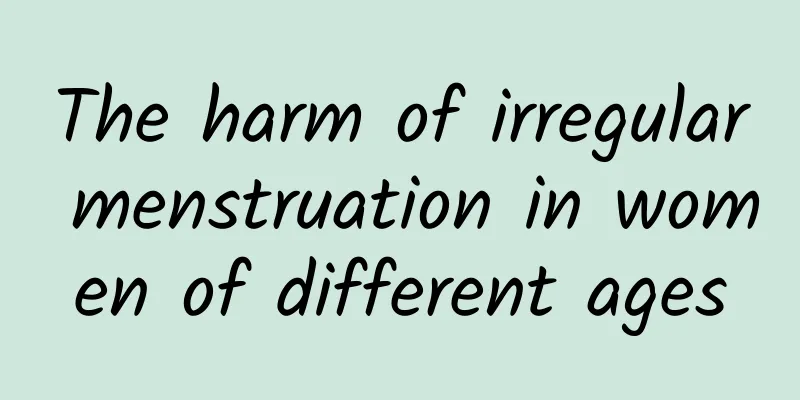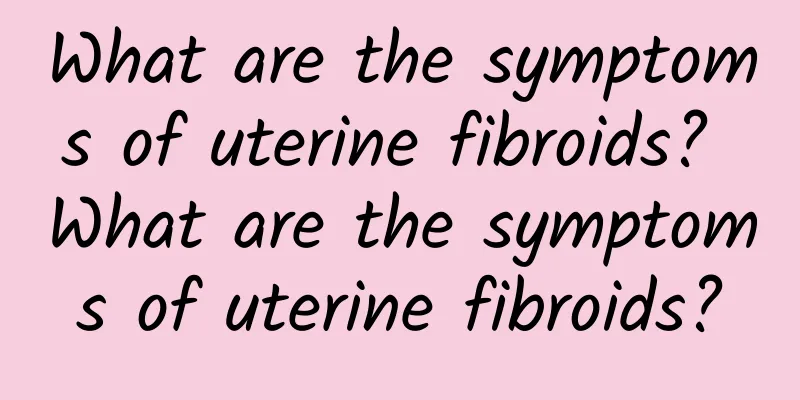Irregular menstruation and vaginal bleeding

|
Irregular menstrual bleeding requires treatment based on the specific cause, which commonly includes endocrine disorders, gynecological diseases or lifestyle issues. Adjusting lifestyle habits, medication or surgical intervention are the main solutions. 1. Endocrine disorders are a common cause of irregular menstruation and vaginal bleeding. Fluctuations in hormone levels, especially imbalances in estrogen and progesterone, can lead to abnormal shedding of the endometrium. It is recommended to assess hormone levels through blood tests and, if necessary, use hormonal drugs such as oral contraceptives, progesterone, or combined estrogen and progesterone therapy. At the same time, maintaining a regular schedule and avoiding excessive stress can help regulate endocrine function. 2. Gynecological diseases such as uterine fibroids, endometriosis or cervical polyps may also cause vaginal bleeding. These diseases can cause abnormal proliferation or damage to the endometrium or cervical tissue. For different diseases, treatments include drug therapy such as gonadotropin-releasing hormone agonists, minimally invasive surgery such as hysteroscopy or traditional surgery such as hysterectomy. Regular gynecological examinations can help early detection and treatment. 3. Lifestyle issues such as excessive dieting, strenuous exercise or long-term stress may also lead to irregular menstruation. These factors affect the body's metabolism and hormone secretion, which in turn affects the menstrual cycle. It is recommended to adjust the diet structure and increase foods rich in iron, vitamin B and protein, such as lean meat, eggs and green leafy vegetables. Moderate exercise such as yoga or walking can help relieve stress and improve physical condition. The causes of irregular menstruation and vaginal bleeding are complex and varied, and targeted treatment is required according to the specific situation. By adjusting lifestyle, taking medication or surgical intervention, symptoms can be effectively improved and health can be restored. If symptoms persist or worsen, you should seek medical attention in time to avoid delaying the condition. |
<<: What medicine to take for uterine fibroids and ovarian cysts
>>: Is cervical hypertrophy and pelvic effusion serious?
Recommend
How to soak your feet to treat pelvic inflammatory disease
Pelvic inflammatory disease can be clinically div...
Dietary principles after artificial abortion
After an artificial abortion, it is necessary to ...
How to diagnose chocolate cysts
How to diagnose ovarian chocolate cysts? Ovarian ...
Can eating fish oil make your head stronger? German scholars: Just supplement in moderation
In order to prevent their children from losing at...
Experts explain the causes of ovarian cysts
Many women suffer from ovarian cysts, which have ...
Does the milk tea you drink really have "milk"? Is milk tea calcium-supplementing and nutritious? The answer is…
Do you have the habit of drinking dairy products?...
Which diseases should vulvar leukoplakia be differentiated from?
What diseases should vulvar leukoplakia be differ...
Symptoms of vaginitis
Vaginitis is an inflammation of the vaginal mucos...
Is chocolate cyst serious?
Are chocolate cysts serious? Under normal circums...
Post-abortion cervical adhesion
Post-abortion cervical adhesion Cervical adhesion...
What are the symptoms of cervicitis?
What are the main symptoms of cervicitis? Cervici...
Why do married women suffer from cervicitis? How can married women prevent cervicitis?
Many married women are prone to cervicitis. Why a...
Learn more about the causes of cervical hypertrophy that cannot be ignored
Early detection of symptoms of cervical hypertrop...
The causes of ovarian cysts are as follows
Ovarian cysts refer to the formation of cystic ma...
How to prevent chronic cervicitis?
How to prevent chronic cervicitis? Many people do...









